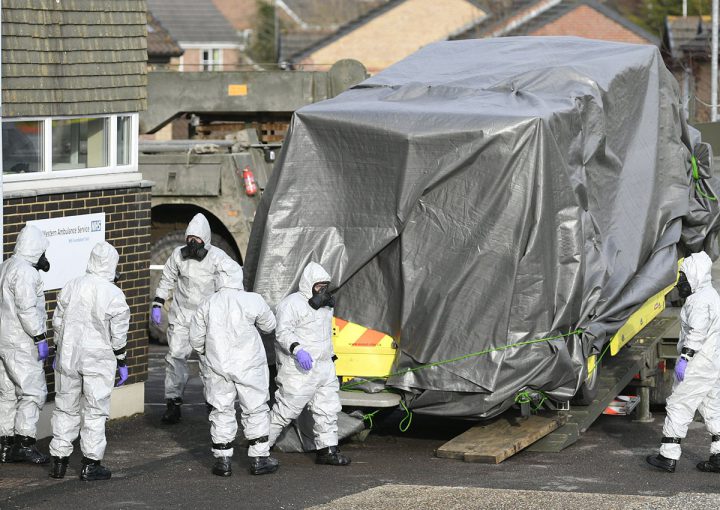The Russian Foreign Ministry says British special services could have been behind the poisoning of a former Russian spy in Britain.

Britain has accused Russia of a nerve agent attack on former double agent Sergei Skripal and his daughter. Russia has fiercely rejected the accusations, calling them baseless.
Skripal, 66, who was swapped in a spy exchange deal in 2010 and went to live in England, and Yulia Skripal, 33, were found unconscious on a public bench in a shopping center in Salisbury on March 4. They remain critically ill in hospital from the attack in which, British authorities say, a Soviet-era nerve toxin called Novichok was used.

Get breaking National news
As a result, more than 20 nations have expelled over 130 Russian diplomats this week in a show of solidarity with Britain. Russia denounced the actions as “boorish” and pledged to retaliate.
The Russian Foreign ministry’s claim Wednesday of “possible involvement” of British special services in the poisoning marks Moscow’s bluntest claim yet of alleged British foul play. British officials have previously rejected such Russian claims as nonsense.
“If convincing evidence to the contrary is not presented to the Russian side we will consider that we are dealing with an attempt on the lives of our citizens,” the Russian ministry said in a statement.
Moscow said the British failure to provide evidence suggests the poisoning was a “major political provocation.”
— With files from Reuters













Comments
Want to discuss? Please read our Commenting Policy first.